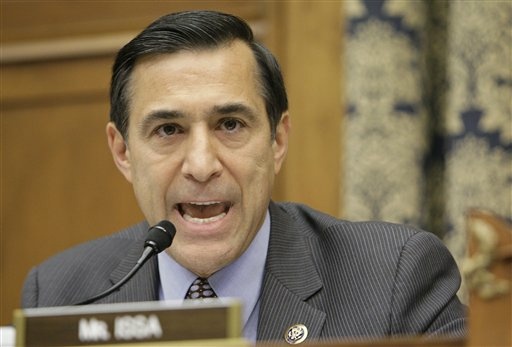A bipartisan group of U.S. House members has been meeting to work out an immigration reform bill both sides can support. Exactly what’s in that plan is still up in the air. But the first House immigration hearing makes it clear where both sides agree…and where they do not.
The line in the sand for Democrats is citizenship, not legalization — what they see as second class status — for the estimated 11 million people who illegally reside in the United States.
Democratic Congresswoman Zoe Lofgren of San Jose is a member of the bipartisan group looking for compromise. "With the exception of slavery and the Chinese exclusion act," she said, our laws have never barred persons from becoming citizens. "And we should not start now."
But Republicans on the House Judiciary Committee nearly unanimously say legalization should be enough. Several pointed to belief in the rule of law as the opposite of granting citizenship to people who broke the law to get here. GOP Representative Blake Farenthold of Texas worried what message it would send to the next wave of immigrants who want to illegally cross the border. Alabama Republican Spencer Bachus called citizenship the "toxic" issue that could derail the prospects of passing an immigration reform bill.
But outside the hearing room, the only Republican from California differed with his GOP colleagues. Congressman Darrell Issa of Temecula said he doesn't want people to live permanently in this country unless they have an opportunity to be full citizens. "I believe that that’s the inherently American thing to do."
The two sides also disagree about visas for immigrants' relatives.
Both sides agree there’s a need for more visas for high tech workers and for some sort of electronic worker verification system. Both sides mention tougher border security, although Congresswoman Lofgren pointed out that the U.S. spends more money on immigration enforcement than on all other federal law enforcement combined.
California members from both sides of the aisle also united on another issue: protecting California's $30 billion agriculture industry.
One of the experts who testified before the committee, Michael Teitelbaum with the Alfred P. Sloan Foundation, referred to his study that shows banning foreign-born farm workers would force growers to make different choices about what they grow - for example walnuts they can harvest by shaking a tree vs. apricots that require picking by hand.
Democrat Karen Bass of Los Angeles expressed skepticism at this. She said keeping workers out could "devastate" California's economy. She challenged Teitelbaum, and asked whether he had "any other examples of crops that do not require farmworkers?" Teitelbaum replied that many crops - wheat, for example - are less labor intensive than many California staples.
GOP Congressman Issa told Teitelbaum that if he was right, the U.S. would import lettuce instead of growing it in California. Issa supports an agricultural guest worker program that's separate from a path to citizenship for those who live illegally in the United States.














